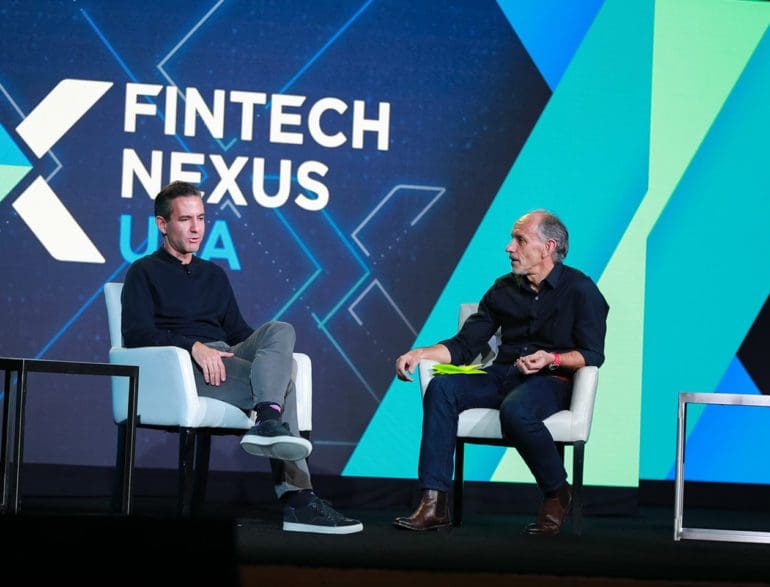How the world’s largest digital bank brought millions of people into the financial system
When Nubank went public at the end of 2021, it was the day after Fintech Nexus celebrated the success of the LatAm conference in Miami.
While speakers covered how they navigated the emerging market, nearly every discussion mentioned the Nu industry giant on and off the stage.
On the second day of the Fintech Nexus USA conference, Nubank’s David Vélez, finally took to the Nexus stage for the first time, sitting down with Capital One Co-Founder Nigel Morris, a fintech investing legend and managing partner at QED.
Morris quickly pointed out Time Magazine had that day named Velez one of the 100 most influential human beings of the year.
Velez brushed it off and jumped right into his casual ‘zero to 60m’ startup story that landed him on stage. The team went from a tiny startup in a small suburban house to the largest digital bank in the world with 60 million users and growing strong.
“[Back then] after a couple of meetings, we decided that we wanted to change the industry, as a fully digital bank, consumer obsessed, and building a technology company that will provide financial services for the bank and the unbanked consumers,” Velez said. “So, our goal was to have 1 million credit cards in five years.”
Oligopolistic consolidation? Just smash it
When Nubank launched in 2013, it faced a Latin American Banking market that was 85% consolidated in about five banks. Growing in Brazil and now across Colombia and Mexico, the firm went from 4 million to 50 million in just four years. As Velez described the journey, eager fintech and banking execs in the crowd looked on, learning from a superstar how they too could build excellent products.
It all started when Velez first tried to open a bank account in Brazil. He ran face-first into a months-long, bulletproof glass separated customer onboarding experience that he said he could not believe he had to go through even in one of the world’s most profitable banking environments.
“In 2013, I went to try to open a single simple bank account in Brazil, and it was a five-month process have to go to the bank, and the branch was trapped in his bulletproof door with armed guards looking at me as a criminal; to leave my backpack outside, and wait 40 minutes,” Velez said. “And after five months of a lot of frustration, I could not understand how it was possible that these banks were treating customers this way. How is that even possible in one of the most profitable banking industries in the world.”
Luckily, with a background at Sequoia Capital and Morgan Stanley, Velez had the tools to fix it. After researching the market, he found that the majority of the LatAm market was similar: five central banks controlled almost everything, and none of them trusted customers.
Effectively, an opportunity that we saw was that you have five banks that own 85% of all the investments, credits, and lending insurance, a very concentrated market. When you look across Latin America, it’s effectively the same thing, the same thing in Colombia and Argentina and Mexico,” he said.
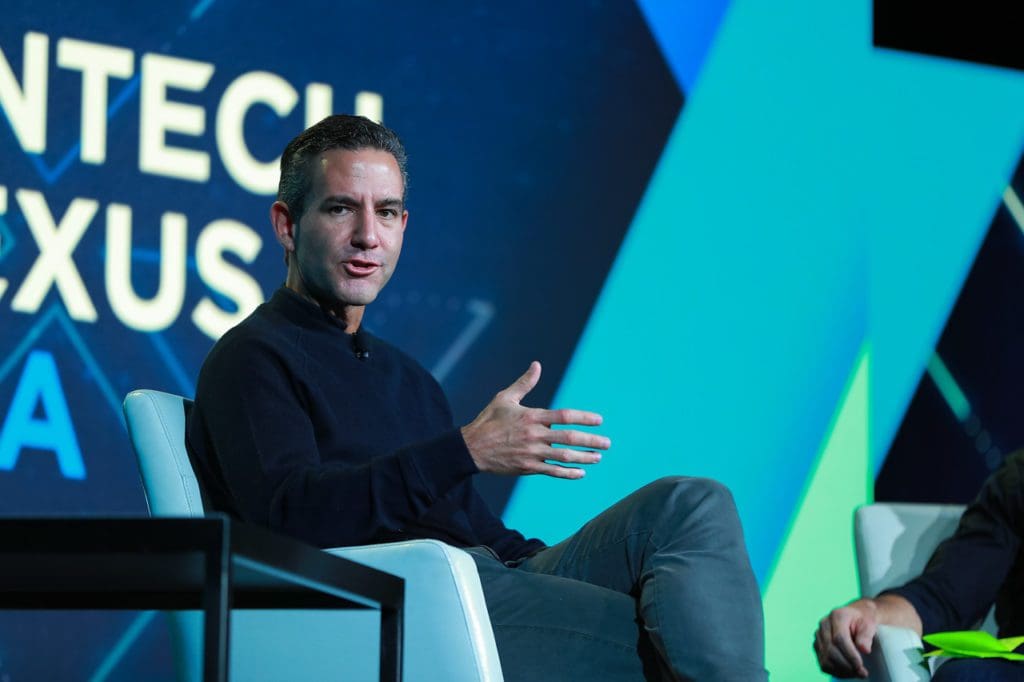
The choice was clear: build a better alternative and break through an oligopoly.
“At the time, it seemed completely impossible. We talked to 30 CEOs, experts of the biggest banks in Brazil, and they all told us that it was impossible that the big banks were going to crush us. But we wanted to give it a shot.”
Going full digital no small task
Originally from Columbia and an outsider to brazil, Velez said he studied the industry and decided to change it by going fully digital. But that was no small task, and Morris reminded the crowd that the light-hearted storytelling is a cover.
“I mean, David is being humble as always, his net promoter score is 90, and it’s 94 in Mexico. Across our QED portfolio, I don’t think there are many companies in that range. They’re truly incredibly special,” Morris said. “Was there a single moment where you said, ‘Look, I believe that I can build this, I really believe that I can pull off NuBank?'”
“Yeah, the first 12 months were a lot of discovery of figuring out how to do it, the word fintech didn’t exist, and the regulator had no idea what ‘cloud’ meant. Many near-death experiences in those first 12 months trying to figure out how to do it,” Velez said. “The regulation changed, and we had to completely pivot and try to figure out how to work with the banks, initially as a banking partner. But we were able to launch those first 12 cards, and at that point, we felt very good that the product could be built.”
Velez pointed to their significant success, their initial card offerings. Those first 12 cards were built on their premise: zero fees, zero rewards.
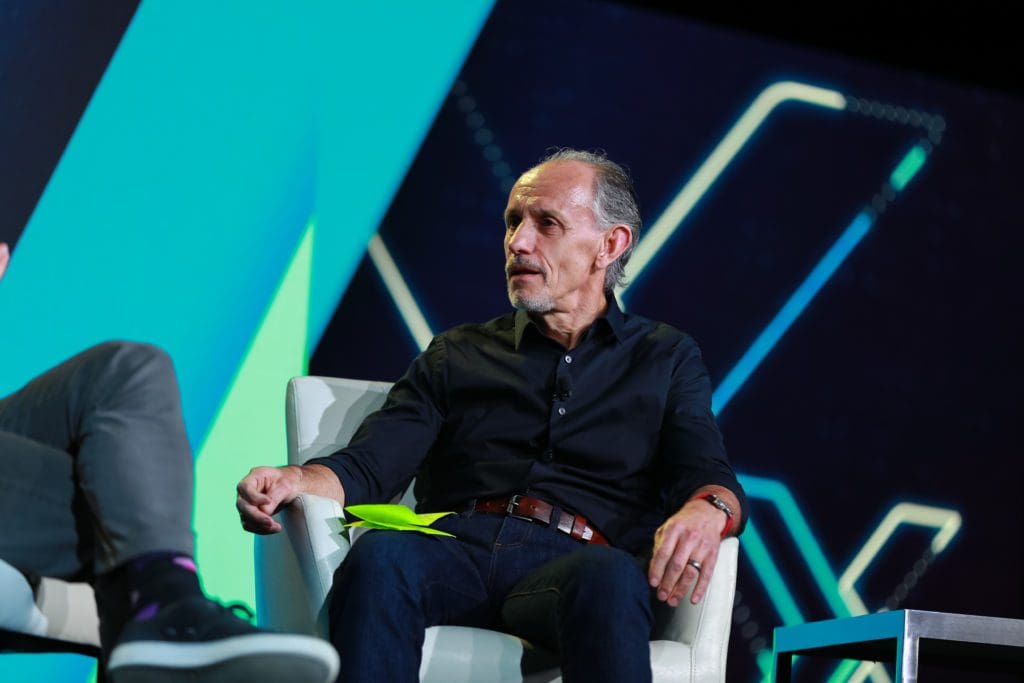
“But we didn’t know if people were going to care about it because there wasn’t a lot of conventional wisdom: We are going to charge zero fees, which is good for a customer, but we will not have any rewards,” Velez said.
“The conventional wisdom around cards was that people wanted points and rewards. And we just decided that people only thought they wanted rewards, but ultimately, they get these rewards that they can’t do anything with.”
At launch, they had 20 employees and were working out of a tiny house, with a dog running around. They received only 200 sign-ups in a day, and everyone was disappointed. After five months, without much growth, a small “peer news” site focused on niche tech news wrote about the card.
“Then we got 5,000 in a day. The following day, we got 10,000; the following day, we got 20,000. And that was the moment to your question,” Velez said. “Where said, Well, maybe we found product-market fit in this niche in these early adopters, let’s focus on that, let’s give fuel to those early adopters and go from there.”
How to build the dream team?
Morris said that since the initial momentum build-up, Nubank has been intentional in its movements about the team around them.
“When you and I have talked in the past, you’ve talked about how little you know and how you needed to significantly augment yourself,” Morris said. “And I’m sure people in the audience are interested in how do they build the right team to get that product-market fit and get that lift off?”
Velez immediately recounted one conversation he had with a former peer and Sequoia partner when he first shopped around the Nubank idea: he was a terrible fit for the job on paper.
“He was extremely direct, very, very honest feedback saying: ‘It seems like a really interesting opportunity, but these are all the reasons you’re the wrong founder for this idea,” he said. “You’re not Brazilian, you don’t speak Portuguese well, you never worked for a bank, you don’t know anything about credit cards, you know, credit, you’re not an engineer, and you want to build this technology company.”
Harsh advice, but the partner said in clear terms, ‘because you lack so many things, you had better go and find a team that fills all these different gaps that you have as a founder.’ Velez said his weaknesses were a shopping list for his co-founders and original team, and he went to work.
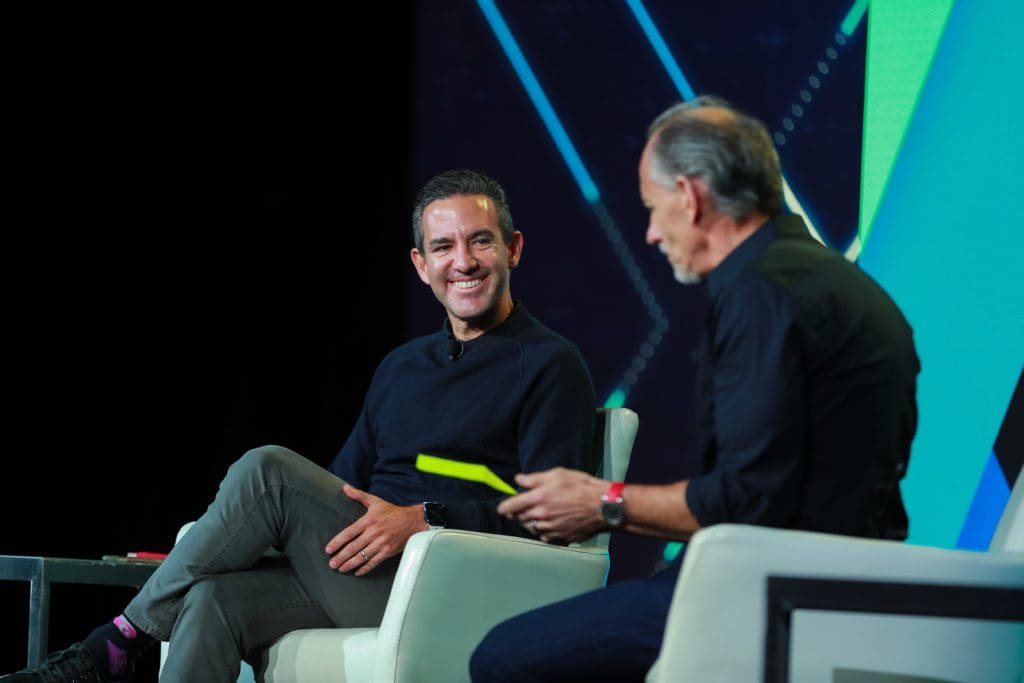
“So I went to look for the perfect insider and met my co-founder, Chris, who came from one of the big banks in Brazil: Check number one,” he said. “The second big gap was that I wanted to build a technology company, not a bank, and there is a huge difference, culturally, conceptually, technically, what are technology companies versus a bank: I studied engineering, but not computer science. So I went to look for a co technical co-founder, and after meeting a lot of people, I ended up meeting Edie, and he joined me as co-founder.”
From there, the team built itself after two great first partnerships, Velez said, with Christina Junqueira and Edward Wible. His outsider status may have looked bad for a bank that, in hindsight, would take over the entire country, but Velez said looking in from the outside was the only way he could break through excepted norms.
It takes outsiders to overcome
“Being an outsider is great. It allows you to question a lot of that conventional wisdom. I don’t think any insider in Brazil would have been able to see the opportunity. They were too consumed in the conventional wisdom around these banks,” Velez said. “So you need an outsider looking in to question a lot of those premises, but then to execute, you want an insider with you that really has a network that has regulated and understands the regular regulation products.”
Morris could not agree more. A generation before Nubank, he and his co-founder, Rich Fairbank, put together Capital One but heard the same thing.
“One, ‘it can’t be done. Is Capital One really going to go and compete with AmEx and Citi, and Chase? And two: if anybody can do it, it’s not going to be you two because you don’t have the experience,'” Morris said. “So sometimes it takes outsiders to be disruptors, be the iconoclast, challenges the conventional wisdom, and so much of what’s happening in fintech I think fits that mold.”
When you have so much experience, and you have so many answers, it’s tough to ask questions.”
David Velez, CEO of Nubank
Velez had a quip to respond, “experience is a double-sided word. When you have so much experience, and you have so many answers, it’s tough to ask questions.”
Those initial questions led to a windfall of customer loyalty, the slow burn of a fuse that ignited a firework of success.
Cutting their teeth with consumer credit
Unlike other mega neo banks, Morris pointed out that Nubank started with consumer credit underwriting as an initial offering. Due to some inspiration from Morris’ Capital One itself, Velez said learning to grow while giving customers money is easier to scale.
Credit is hard, and starting with credit means discipline comes first. Velez said credit is like fire: you can do a lot of good things with it, but if you are not careful, you will get burned very, very fast.
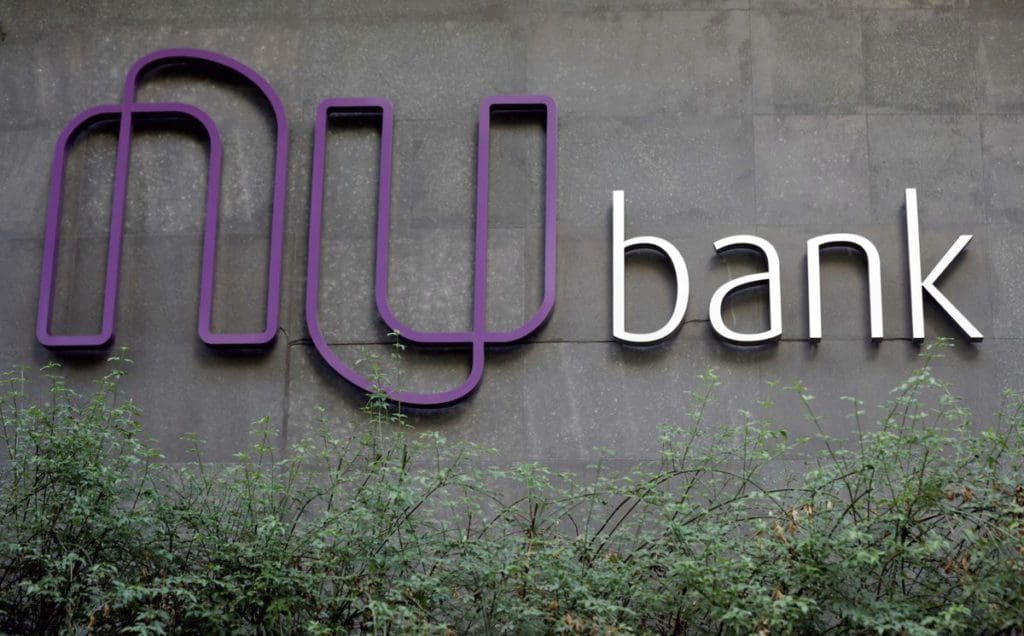
“So everybody ultimately is going to have to get to credit. We wanted to start there, building that muscle since the very first day, because credit is hard,” Velez said. “You can lose your shirt very, very quickly. We started with credit to build, following the example of Capital One.”
Regulation that worked
Morris pointed out that Nubank succeeded partly because of an outright benign regulator, compared to many jurisdictions worldwide that have hurt fintech growth.
“This was a very positive surprise; since the beginning, we found a regulator that understood how bad it was for Brazil to have five banks that dominated the market,” Velez said. “As technology enabled more competition, the regulator was absolutely going for it, but said ‘you have to follow all these rules, I’m not gonna make it easier for you.’ Still, there is goodwill in seeing more competition.”
Timing is everything
Velez said that in 2015, he went on a trip to Mexico and, when he returned, was gung-ho about launching branches up north, much to his co-founder’s dismay. At the time, Nubank had no banking license, was facing changing regulations in its home state, and still not posting a profit.
“I went in 2015 to Mexico and came back super excited saying we have to go to Mexico, what a great market. Nigel, you and the other board members, said, ‘Stop, you’re not ready. You don’t have a funding product, you don’t have a license, and you’re not profitable. It’s too early; you’re going to deviate. That was the right advice. It was too early for us,” Velez said.
Related:
“We completely stopped that and focused on building the product, and three years after, by 2018, we were critical probe was profitable. We had a banking license we had, we had deposited, and we were growing very fast. And at that point, now it felt ready that we could take on a secondary market.”
Morris said the real lesson was to wait for the right moment and not lose patience.
“The moral of the story is don’t try and do it too early when you don’t have the resources. But don’t wait too long because the windows will close,” he said.
A decade of learning: don’t reinvent the entire wheel
Morris rounded out the conversation with a classic; what would he impart if Velez could call back 10 years to his former self?
For all his outsider, break everything dogma, Velez turned a 180 and said he would tell his younger self to listen more to insiders if he could.
“I became very resistant to hiring people with experience. Our initial team the first few years were nearly complete outsiders; we wanted to reinvent everything, from scratch,” he said. “Collections, for example, we started reinventing collections, and it took us three years, frankly, to learn what somebody in the industry could have told us in 15 minutes.”
Don’t go to the extreme, don’t reinvent everything he said, and accept that you can emulate and rent out portions of the business to the more experienced. He said he wished he had gotten a better mix of insiders and outsiders earlier on instead of running into the scaling headaches he had over the years.
“That cost us time,” he said. “I wish we had brought a better mix of insiders and outsiders since the very beginning. It was too extreme. Later, I wish we had ramped up the team with much more experience sooner to have that a very valuable combination between the ability to ask a lot of questions with people who have some answers.”


